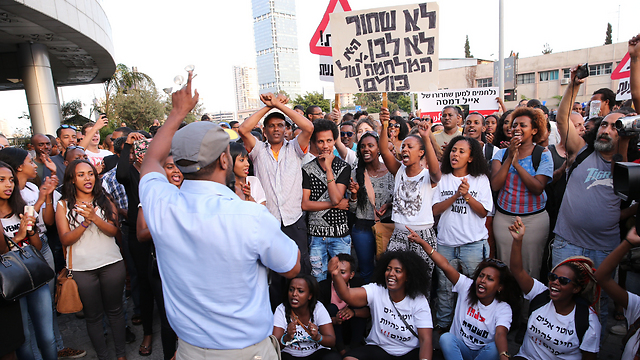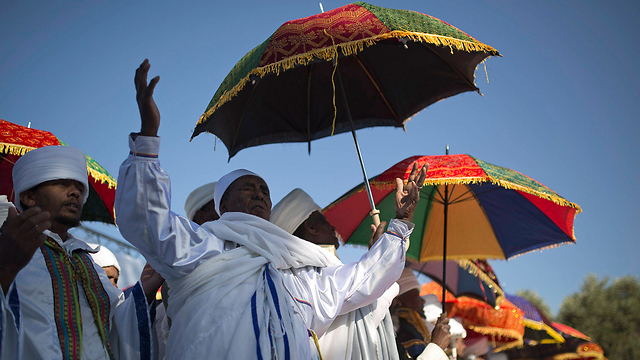According to data from the Central Bureau of Statistics, Ethiopian-Israelis earn 37% less than the rest of the country as well as having a much higher divorce rate.
The divorce rate among Ethiopian-Israelis is significantly higher than among the rest of the population, according to data published on Monday by the Central Bureau of Statistics (CBS). The release of the data coincides with the Ethiopian-Jewish holiday of Sigd.
The statistics show that in 2013, 15 out of every 1,000 marriages in the Ethiopian community ended in divorce, compared to 10 out of every 1,000 among the rest of the Jewish population.

The economic sector also reveals inequalities. According to the CBS statistics, the average Ethiopian-Israeli household spends 10,075 NIS per month compared to 15,053 NIS per month among all households – an additional 33 percent.
Furthermore, the average Ethiopian-Israeli household brings in 11,496 NIS per month, substantially less than the 18,329 per month average among the rest of the population. This is despite the fact that on average, 1.8 members of an Ethiopian-Israeli household are wage-earners, compared with 1.5 per household among the rest of the population.
Differences can also be found in education statistics. The CBS data showed that only a third of high school diplomas among Ethiopian-Israeli students meet university entrance requirements. The rate among other Jewish-Israeli students is 63 percent.
Not rushing to get married
The CBS statistics also showed that at the end of 2014 the Ethiopian-Israeli population stood at 138,200, of whom 85,600 were born in Ethiopia and 52,600 were born in Israel to an Ethiopian-born father.
During 2014, 211 Ethiopians made aliyah to Israel, the lowest number since 2000 and an 85 percent decrease from the year before – in 2013, 1,355 Ethiopians made aliyah.
The CBS explained that this substantial reduction, which started in September 2013, is due to the government’s decision to cease the centralized aliyah process for Ethiopian immigrants.
At the end of 2014, Ethiopian-Israelis made up 29 percent of the population under the age of 14 (of whom 80 percent were born in Israel). Meanwhile, only six percent of the over-65 population is made up of Ethiopians (all of whom were born abroad).

The CBS statistics also reveal that Ethiopian-Israelis are not in a hurry to get married. In 2013, the average age at which Ethiopian men got married for the first time in Israel was 29, 1.2 years older than other Jewish men in Israel.
Among Ethiopian women, the average age of those marrying for the first time is 26.7 years, 1.9 years older than other Jewish women.
The data also showed that 89 percent of Ethiopians marry someone of the same ethnic origin.
Nonetheless, the average household size in the Ethiopian community – at 4.1 people – is markedly higher than the rest of the population, which counts an average of 3.3 people per household. Among Jews alone, the average is 3.1 people per household.
The city with the largest Ethiopian population is Netanya, with 11,200 residents. After Netanya come Rishon Lezion, Be’er Sheva, Ashdod, Rehovot, Petah Tikva and Ashkelon. The city with the highest percentage of Ethiopian residents is Kiryat Malachi, which counts one out of every six inhabitants as Ethiopians. By contrast, only 0.6 percent of Tel Aviv’s residents are Ethiopian-Israeli.
As reported by Ynetnews
